10 Street Photography Project Ideas To Get You Going
Being a street photographer is quite an exhaustive experience when you are not on top of your game. Even the seasoned professionals feel this way during their long and successful careers. The best way to cope up with that pressure is to narrow down your vision to only certain things.
That’s where photography projects come into play and this article is all about executing these project ideas to get your creative juices flowing.
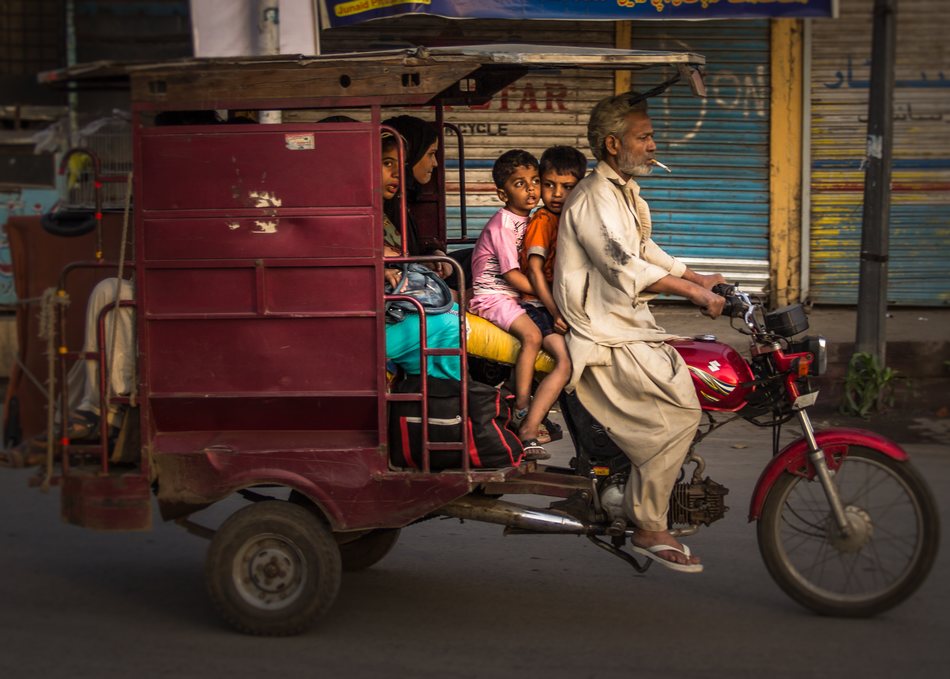
The Ride
Why are Projects important and how they are beneficial?
Working on projects lets you think more clearly. You are more vigilant while looking for certain subjects. This attention to detail really makes a difference in your photographs.
Sometimes, as compared to single images, they let you express bigger stories by presenting your images in a specific way and tell a complete story in a more conventional way.
And biggest of all, these projects come in handy when you stuck in a photographic block and you didn’t know how to get out of it.
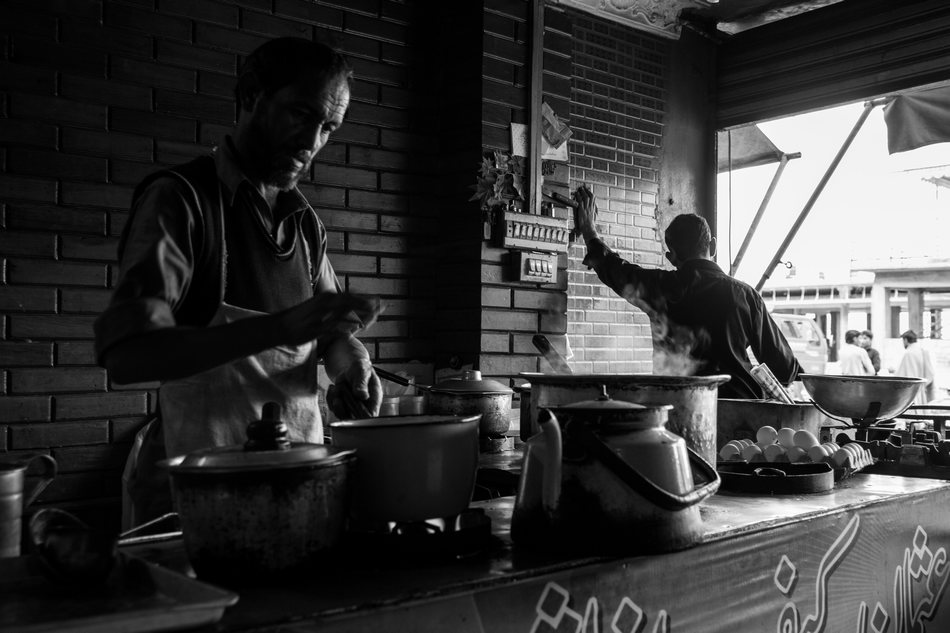
Traditional Tea Making in Pakistan
How to start a project?
There is no hard and fast rule for starting a project. For beginners, you can do two types of projects. You can select a specific story for your project. You can combine multiple images that collectively tell a complete story.
Covering a specific story is too demanding sometimes. Alternatively, you can just select a single design or compositional element for your project. Shooting all your photographs on that same principle will not only much simpler, but it will evolve you aesthetically as a photographer. You can still get beautiful and soulful individual images out of these types of projects.
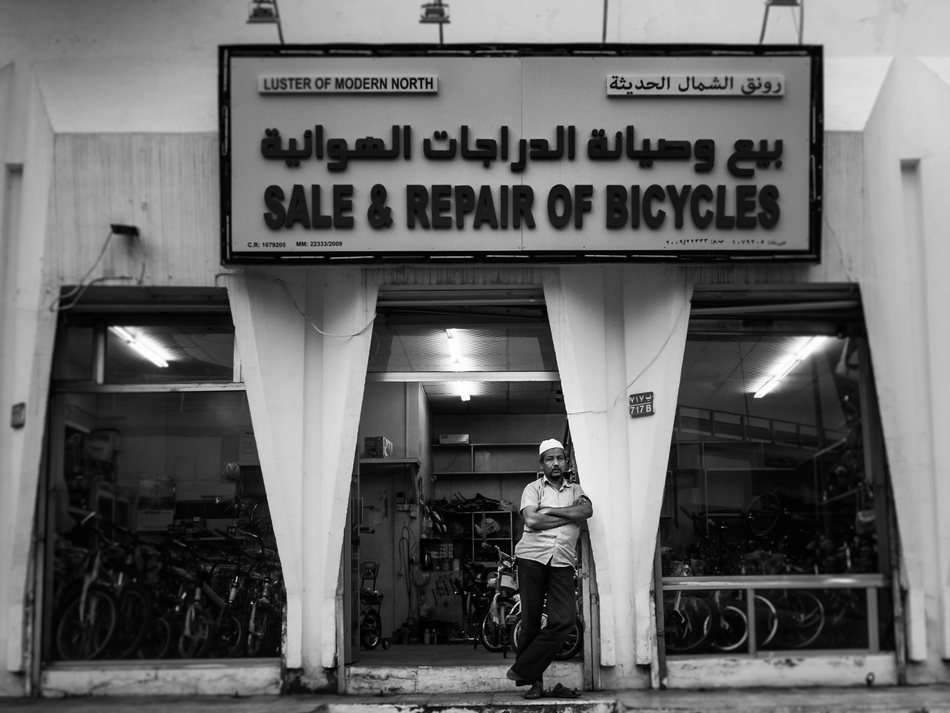
The shopkeeper
10 Street photography Ideas to get you going
Following are few of street photography project ideas that I use all the time when I don’t have any specific assignment and I want to continue doing what I love – shooting street photography. You can come up with your own creative ideas and can apply it to other genres of photography as well.
1. Story
As I mentioned above, you can tell a story with a set of individual images that collectively tell a story in no specific order or you can present your images in a specific order.
If you are telling a story sequentially than 5 or 7 images is a sweet spot. Anything more than that will be difficult for a viewer to keep track of what’s happening. For example, for a 5 images story, give a beginning statement in the first photograph, some action in next three and a conclusion in the last photograph.
If your story is not action-based and it’s more conceptual, make a collection of 10-15 images in no particular order, but all should tell a similar or different angle of the same story. Consistency is key.
For example, I did a small story on children seeking education in Pakistan in areas which were affected by serious earthquakes. Their schools were destroyed, yet they are willing to continue at all cost.
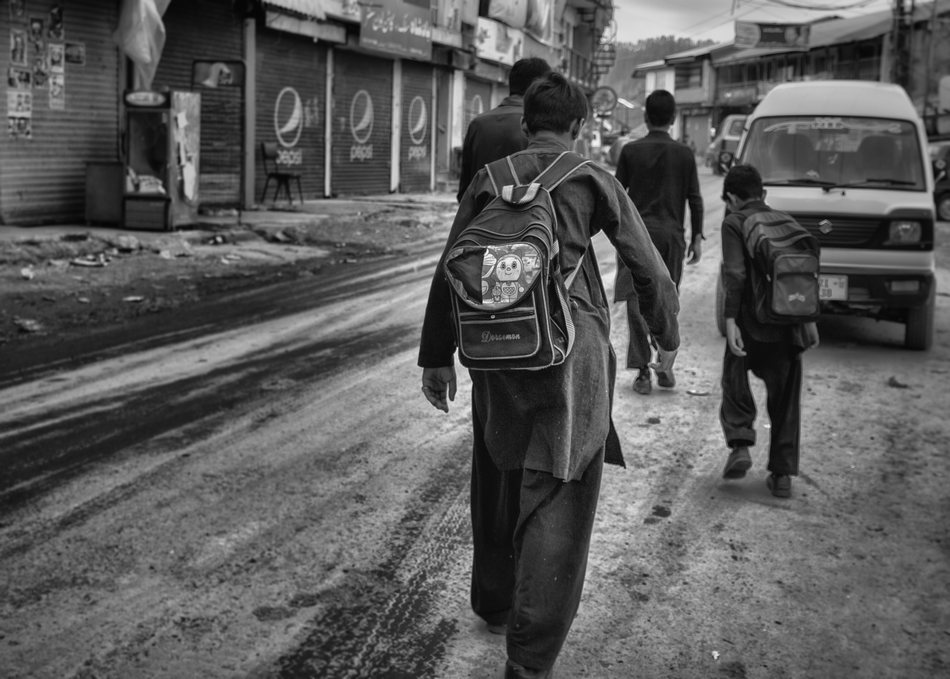
Back to School 1
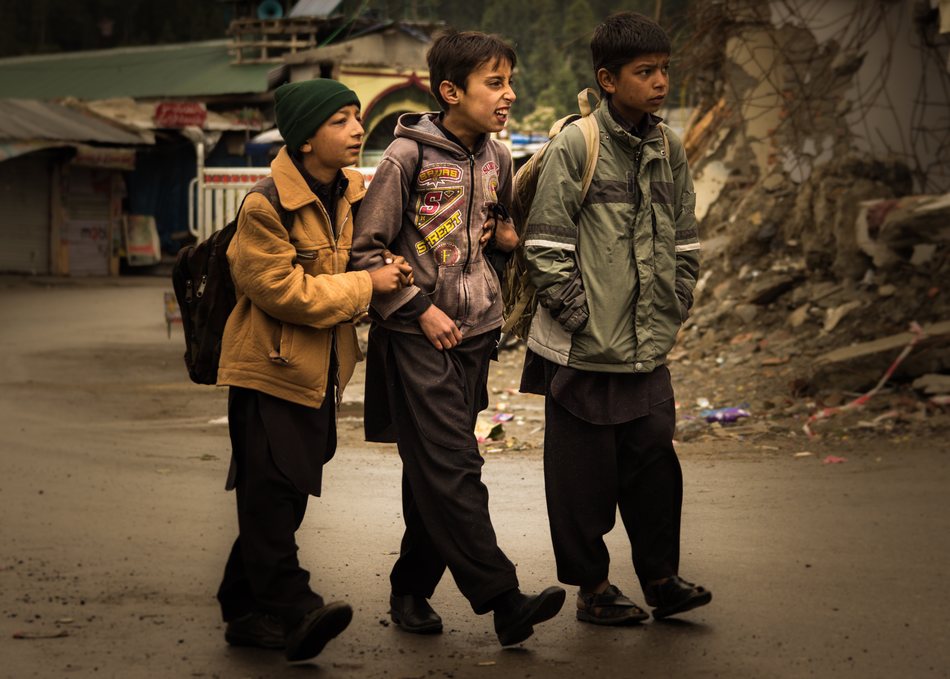
Back to School 2
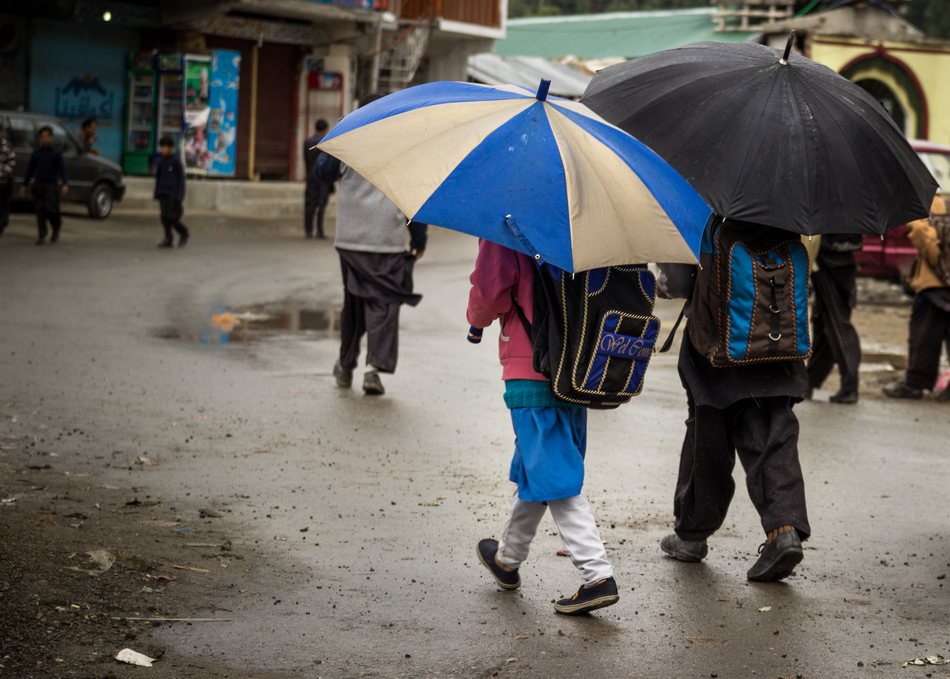
Back to School 3
2. Specific Feeling
You can focus on just one specific emotion and build your entire series of images on it. For example, you can capture ‘Waiting’ on bus stations, ‘Reunion’ on airports, ‘Happiness’ in parties etc. ‘Loneliness’ is the story I captured on streets of Oman. The benefit of this is, you know exactly when and where you need to look for your subjects.
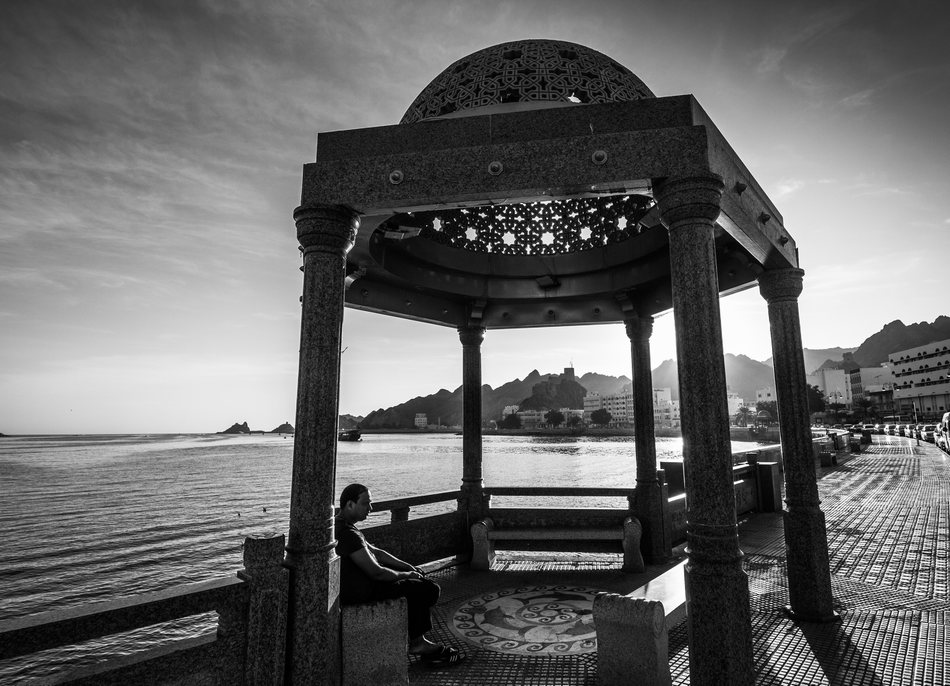
The loneliness 1
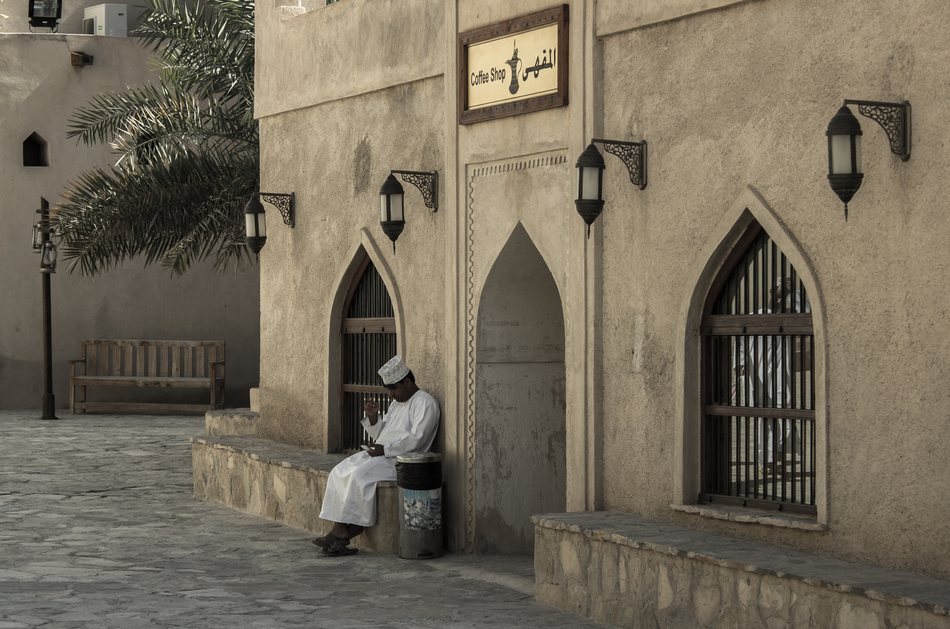
The loneliness 2
3. Environmental Portraits
We all love portraits, but making an environmental portrait is difficult and challenging. Try to balance between subjects versus environment. The center of attention should still be your subject, but with enough environmental context that tells further about your subject and its life.
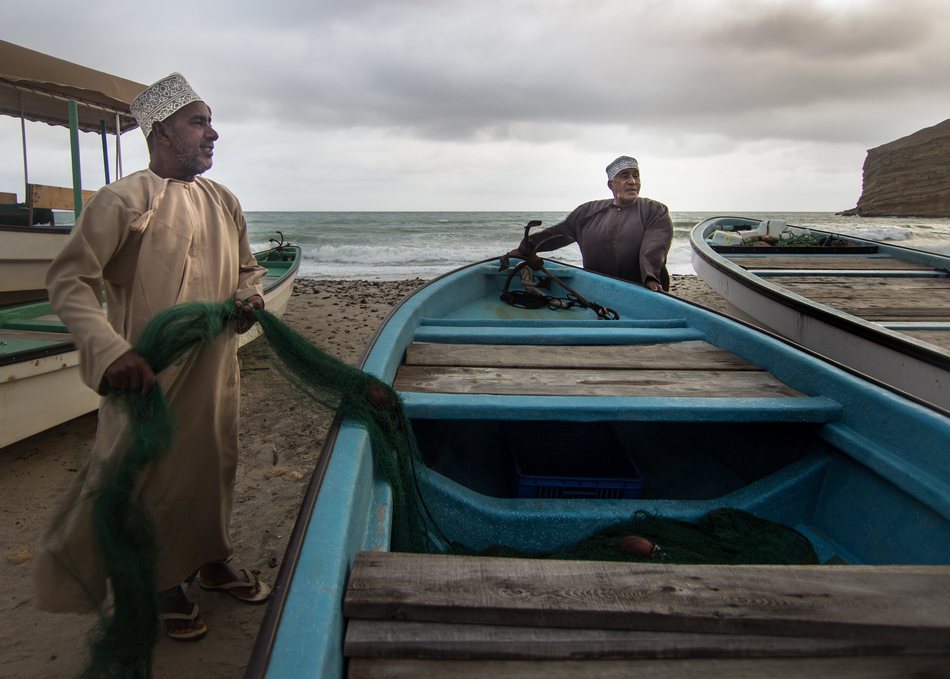
Fishermen at Work
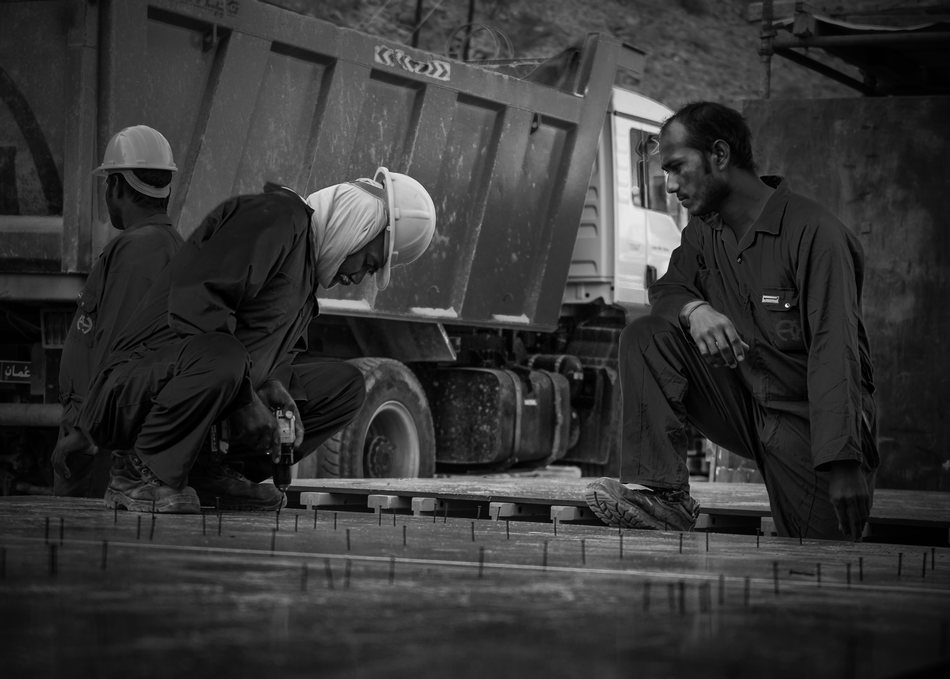
The workers
4. Light and Shadows
This project is purely artistic in nature. You need to look for interesting lights and shadow patterns in various parts of streets and alleys. Take a casual walk and look for shadows. Their length, direction and nature will vary throughout the day. So visit the same place several times and observe people while they are moving and other stuff hanging around. Look how light is filtered through various obstacles to create unique patterns.
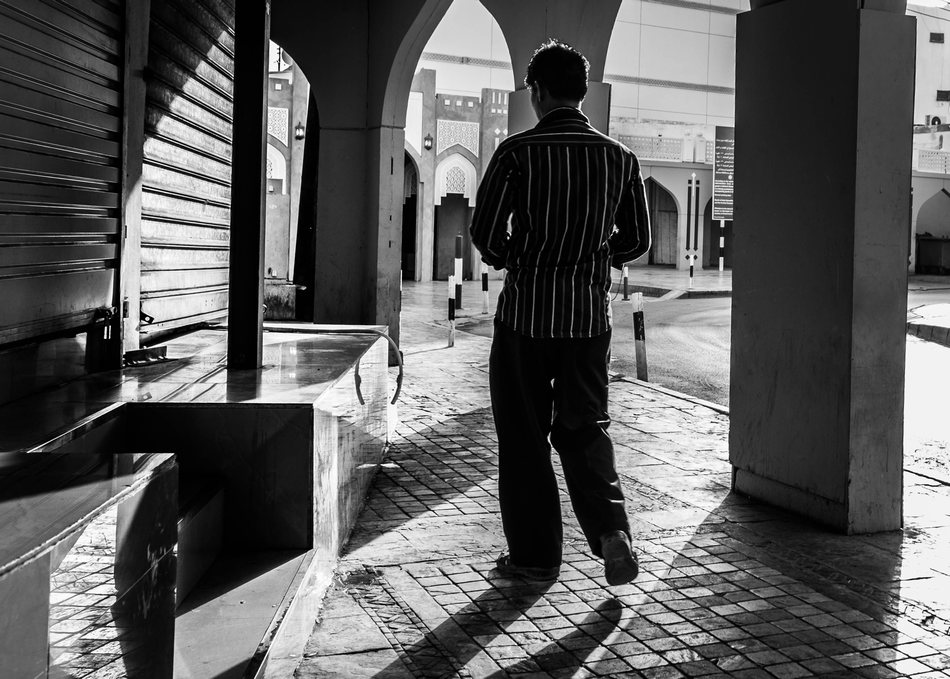
The Light
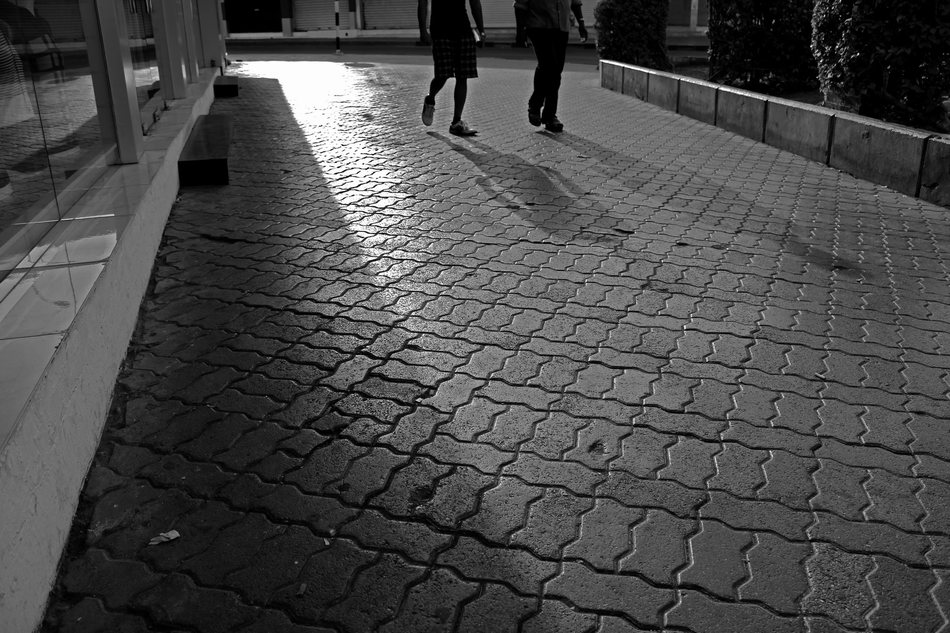
The Shadows
5. Street Portraiture
This project is my favorite. It’s easy. It’s rewarding. It’s fun. All you have to do is to look around for interesting faces. People who are really expressive. With great smiles, interesting emotions or having fun.
Even people who are shy and hiding emotions also brings a level of mystery to your photographs. Challenge yourself by asking tough guys. You know your camera settings well, all you have to do is to ask for permission and bang. You are done.
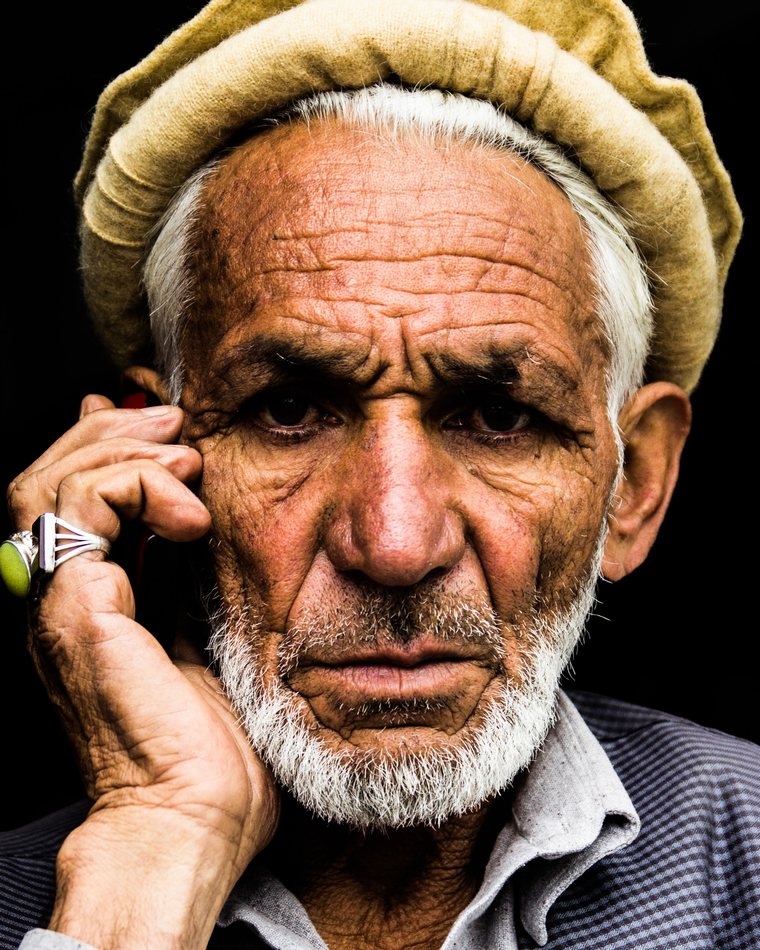
Veteran Tribesman 1
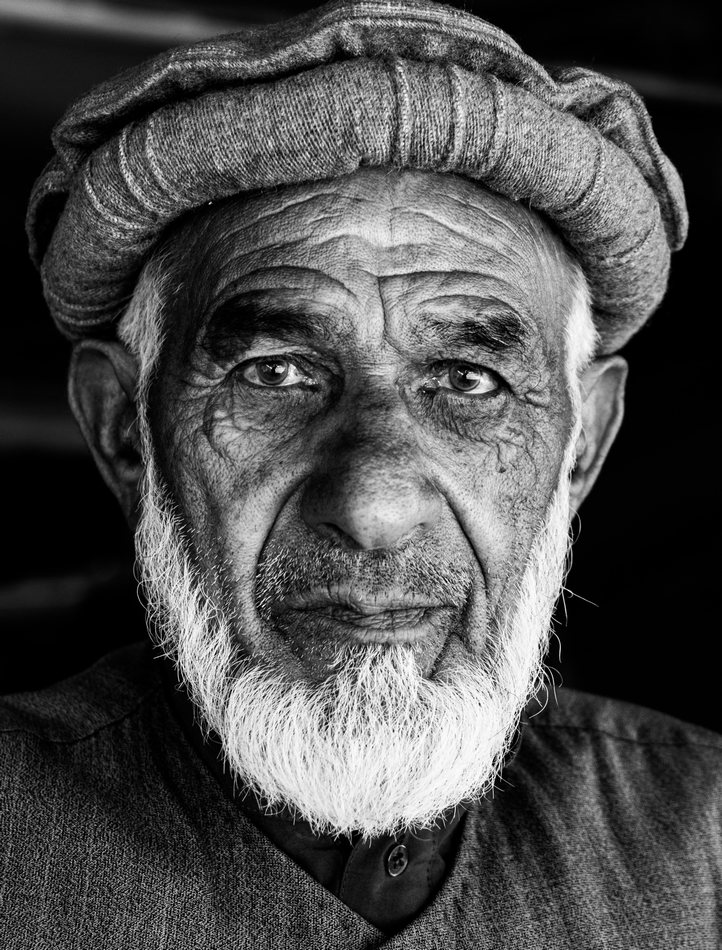
Veteran Tribesman 2
6. Silhouettes
Silhouettes always bring a sense of mystery to your photographs. Since they don’t have the details, you need to emphasize on their shape to make it easy for viewers to recognize them. Try photographing silhouettes on streets, but put enough context in the background for viewers to relate to your subject.
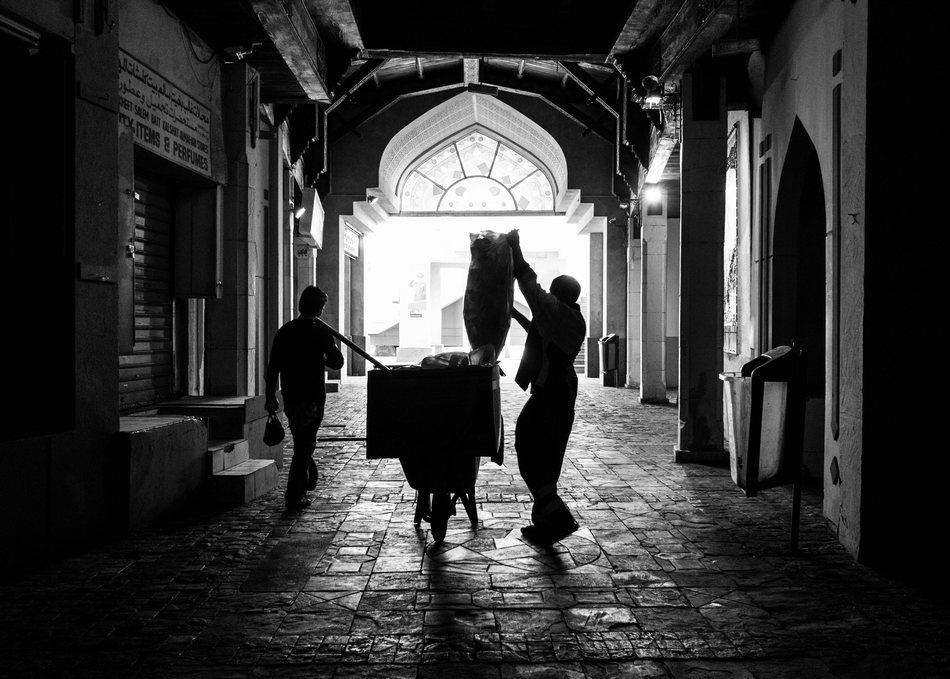
The Workers
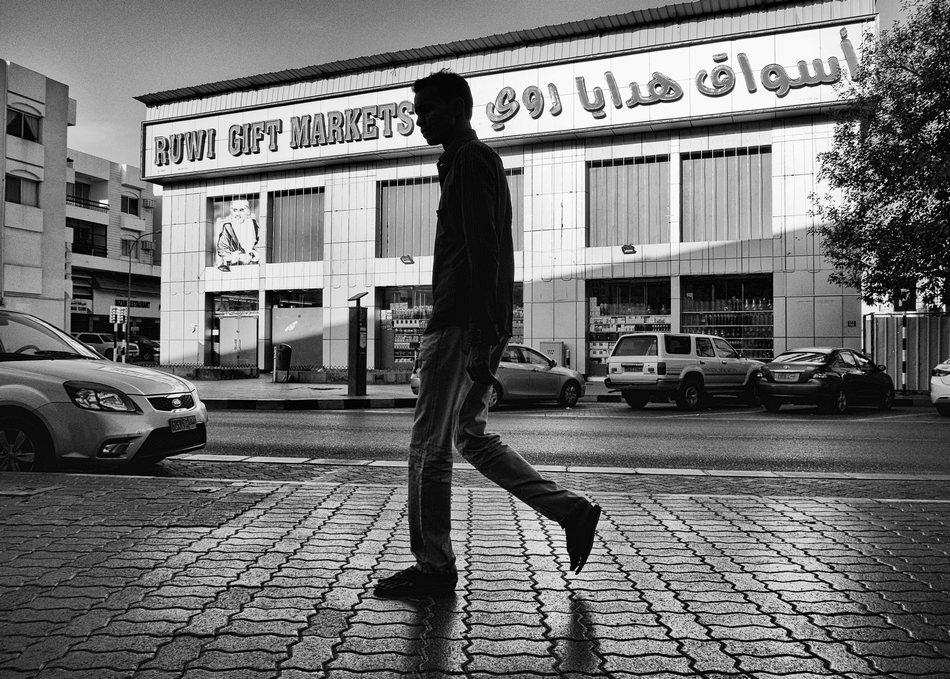
Shopping Spree
7. Humor
Honestly speaking, humor is difficult in street photography, but if you keep your eyes open, you can find it in abundance. It can be the most mundane thing that all of us witness on a daily basis, but your observation and timing make it humorous and ironic.
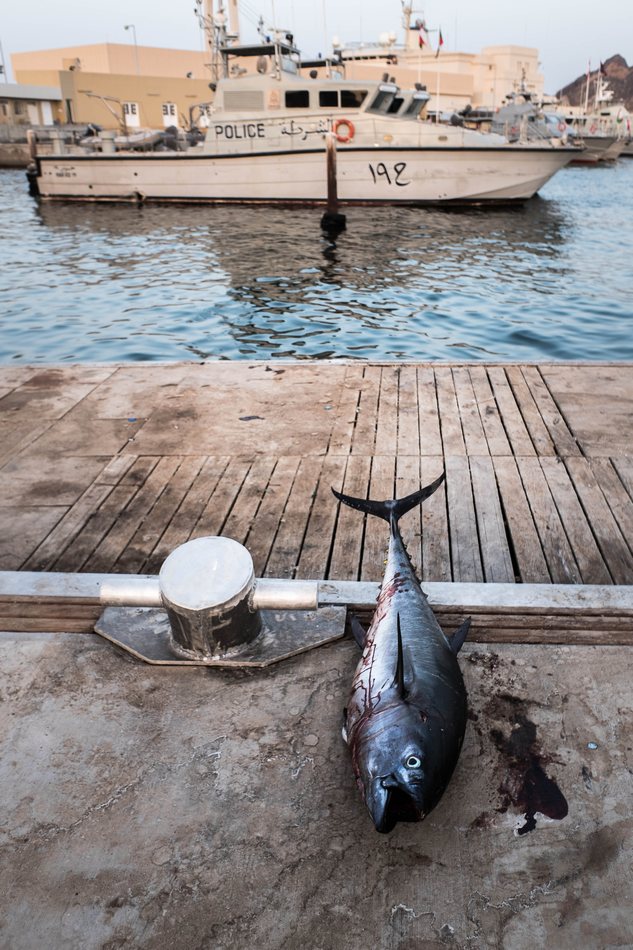
Busted!

OMG! It’s my turn
8. Motion Blur
Introducing intentional blur really adds a sense of motion in your photographs. But it should not be random in nature.
Firstly, your photograph should be mostly tacked sharp and only certain elements should be blurred so it gives the idea that it’s an intentional blur and not a camera shake. Secondly, the moving elements should still retain enough of their details to know what or who they are?
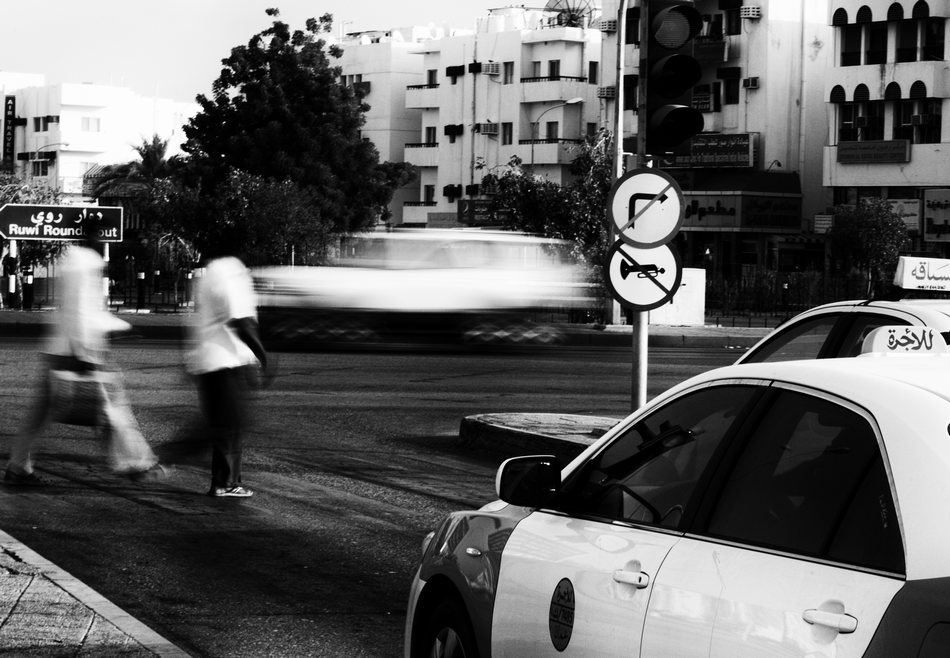
The Crossing
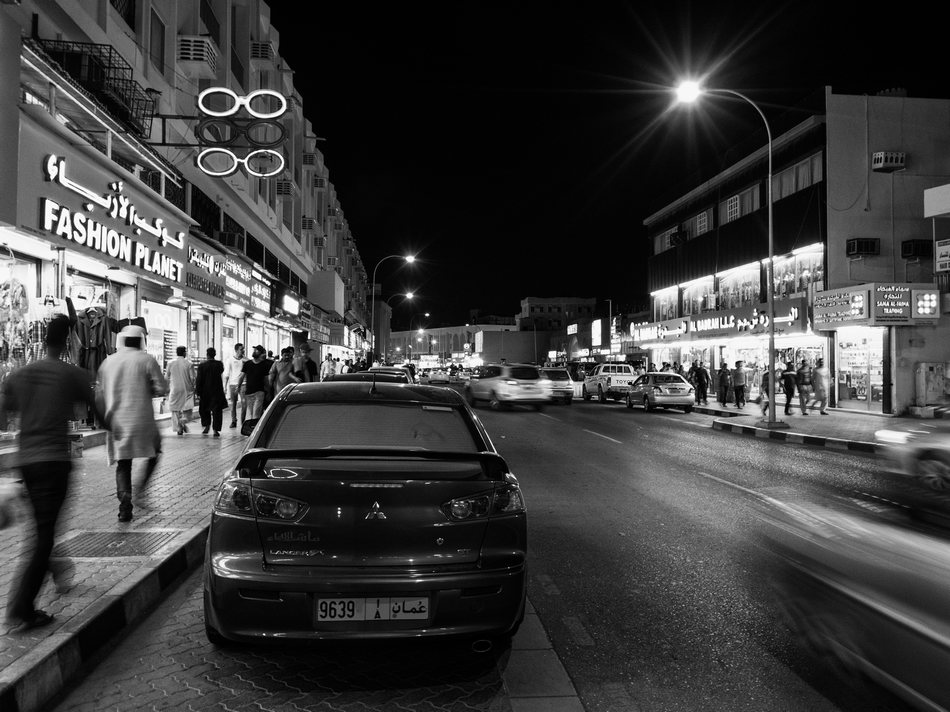
Hustle and Bustle
9. Action
This is one of my favorite projects and it requires luck and a lot of practice. Try to photograph people when they are in action. You will find plenty of these opportunities on a street. Make sure the moment you captured should be decisive and enough context should be present for the viewer to relate the freezing moment with its surrounding.
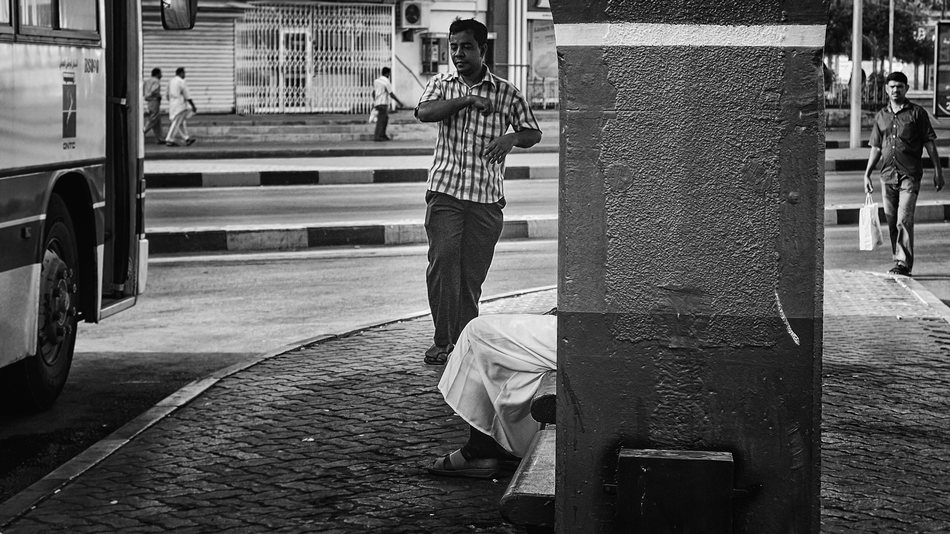
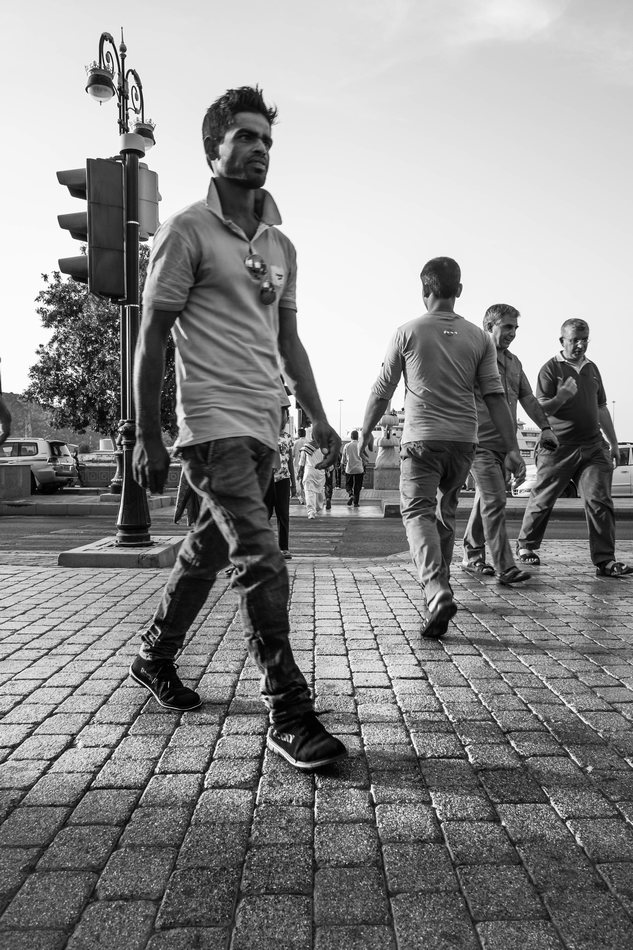
The Crossing
10. Juxtaposition
Juxtaposition is presenting two separate things together in a way that it’s contrasting with one another, but still somewhat related. It provides a very interesting point of view.
It’s a difficult genre of street photography and you will not find ample opportunities, but that makes it more rewarding as well. Look for posters, road signs, and graffiti closely and you will know which element can give a contrast to it and then simply wait for that element to fill in.
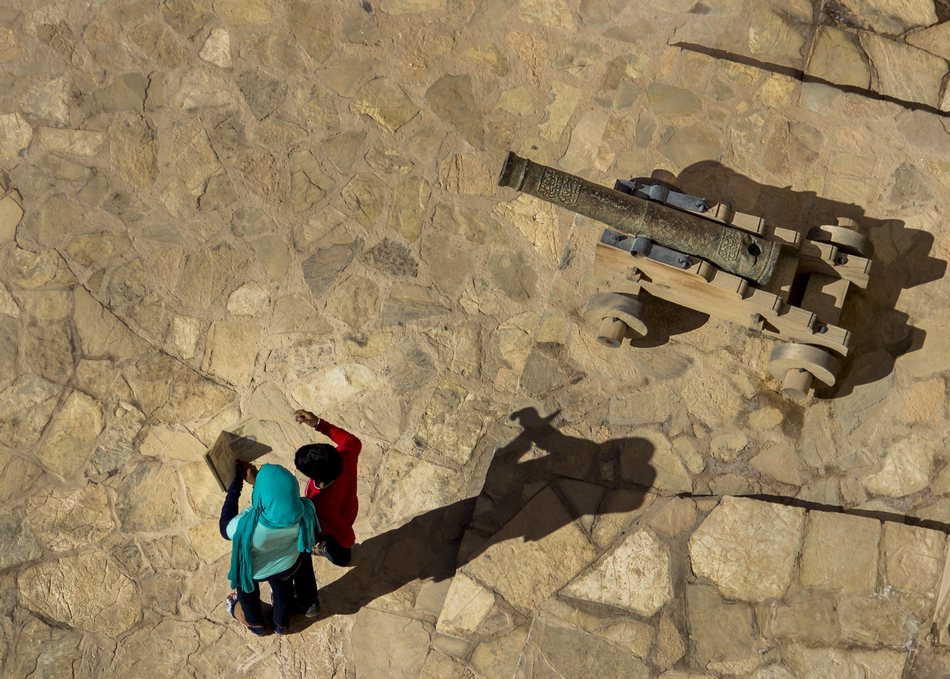
Solving same problem, the different way
And now here’s a few more handy tips that will help you along the way to become a better street photographer.
- Stick to one or maximum two projects at a time whenever you go out to shoot. More than 2 projects again bring all the confusion and prevent you from looking closely.
- Don’t bother what camera or lenses you are using. Just shoot with whatever you have. If you have multiple lenses, just take one at a time. This is called Creative constraint and it polishes your creativity.
- Color or Black and white doesn’t matter. Some images are bound to look good in color while others in monochrome. Follow your gut feeling.
- Don’t share your photos right after coming back. You are so excited that it clouds your judgment. Shoot one day, process your photos the next day. Then decide which one is best to share with others.
- Interact with people if required. Use your photography to build your social skills. It’s a lot funnier that way. If you are not doing candid, ask for permission and if possible chat with them a little. There are lots of interesting stories out there.
- Look out for sensitive/religious places. In every country there are certain places that are sensitive due to security reasons or religious/cultural nature. Respect that and don’t push yourself to get a shot there.
- Don’t exploit people. Your picture is not worth more than someone’s feelings.
- Be safe. The Camera that you bought with your hard earned money is worth more than a few shots from a dangerous neighborhood unless you are a crime reporter. :)
- Be polite. Ready to delete. If someone asks too many questions why you are taking their picture, ask them if they want to get their picture deleted? And if they want, then delete it. Period.
- Enjoy. This is the best one. As Thomas Leuthard said “Street photography is like fishing. Catching a fish is more exciting than eating it“. Enjoy the process of looking for a subject, analyzing it, asking permission and finally getting a shot. So even if you didn’t get a shot, you will still enjoy the other parts.
